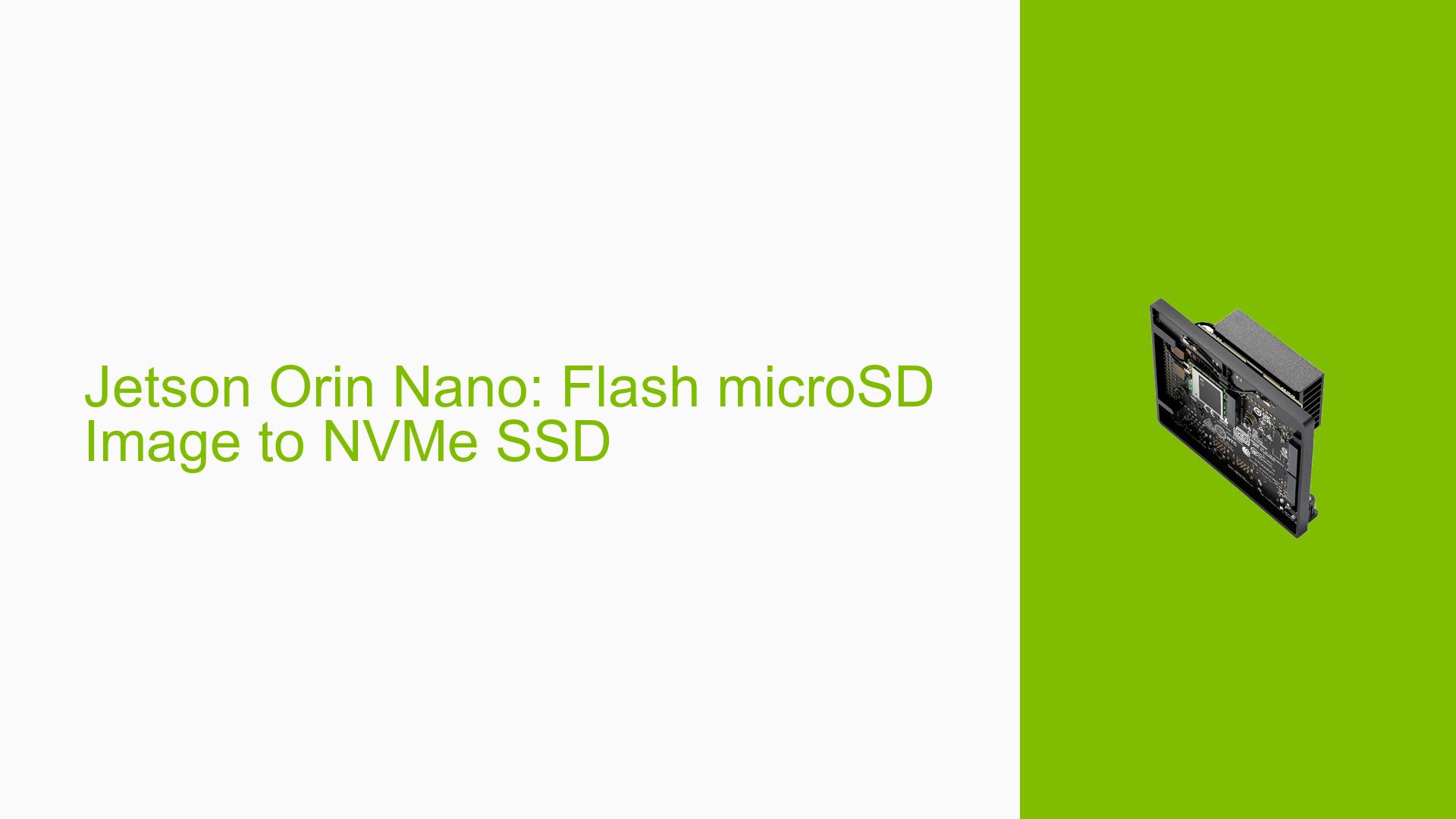Jetson Orin Nano: Flash microSD Image to NVMe SSD
Issue Overview
Users of the Nvidia Jetson Orin Nano developer kit have reported challenges in transferring their operating system (OS) from a microSD card to an NVMe SSD. The primary symptoms include difficulties in cloning the OS and configuring the system to boot from the SSD instead of the microSD card.
The issue typically arises after users have completed their projects and wish to enhance performance by utilizing the faster NVMe SSD. Specific errors or symptoms mentioned include failure to boot from the SSD after attempting the transfer, or incorrect configurations that lead to system instability.
The hardware involved includes the Jetson Orin Nano developer kit, a microSD card, and an NVMe SSD. Users have noted that they are often unsure of the correct commands or procedures needed for this process, leading to frustration. The frequency of these issues appears to be consistent among users attempting similar tasks.
The impact on user experience is significant, as failure to successfully migrate to an SSD can hinder project development and deployment, limiting the performance benefits that come with using an NVMe SSD.
Possible Causes
-
Hardware Incompatibilities or Defects: If the NVMe SSD is not compatible with the Jetson Orin Nano or is defective, it may not function correctly.
-
Software Bugs or Conflicts: There may be bugs in the OS or conflicts between software packages that prevent successful cloning or booting from the SSD.
-
Configuration Errors: Incorrect settings in configuration files can lead to boot failures. For example, failing to update boot parameters after migration.
-
Driver Issues: Outdated or incorrect drivers for the NVMe SSD may cause recognition issues during boot.
-
Environmental Factors: Power supply issues or overheating could affect hardware performance during the cloning process.
-
User Errors or Misconfigurations: Incorrect commands or procedures followed by users can lead to unsuccessful cloning or booting attempts.
Troubleshooting Steps, Solutions & Fixes
-
Verify Hardware Compatibility
- Ensure that your NVMe SSD is compatible with the Jetson Orin Nano developer kit.
-
Clone OS from microSD to NVMe SSD
- Follow these steps:
- Use
ddcommand to clone your OS:sudo dd if=/dev/mmcblk0 of=/dev/nvme0n1 bs=4M status=progress - This command copies data from the microSD card (
/dev/mmcblk0) to the NVMe SSD (/dev/nvme0n1).
- Use
- Follow these steps:
-
Update Boot Configuration
- After cloning, you need to modify the boot configuration:
- Open the extlinux configuration file:
sudo nano /boot/extlinux/extlinux.conf - Change
root=/dev/mmcblk0p1toroot=/dev/nvme0n1p1.
- Open the extlinux configuration file:
- After cloning, you need to modify the boot configuration:
-
Check for Driver Updates
- Ensure that all relevant drivers are up-to-date. You can check Nvidia’s official documentation for any updates related to Jetson devices.
-
Test Booting from NVMe SSD
- Reboot your system and check if it successfully boots from the NVMe SSD.
-
Refer to Documentation
- For detailed guidance, refer to Nvidia’s official documentation on cloning root filesystem:
-
Explore Community Resources
- Check community repositories such as:
- GitHub Repository for additional scripts and tools related to switching root filesystem to an NVMe SSD.
- Check community repositories such as:
-
Best Practices for Future Prevention
- Always back up your data before performing major operations like cloning.
- Regularly check for firmware updates for both your Jetson device and any attached peripherals.
By following these steps, users should be able to successfully transfer their OS from a microSD card to an NVMe SSD and configure their Jetson Orin Nano accordingly. If issues persist, further investigation into specific error messages or behaviors may be required.
